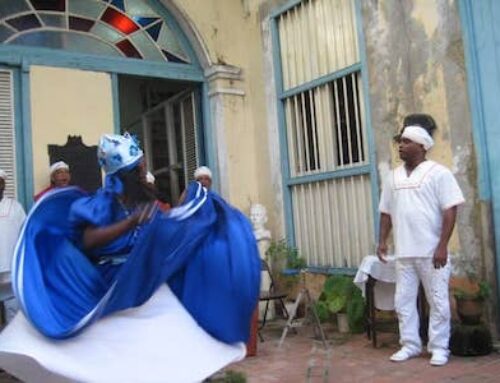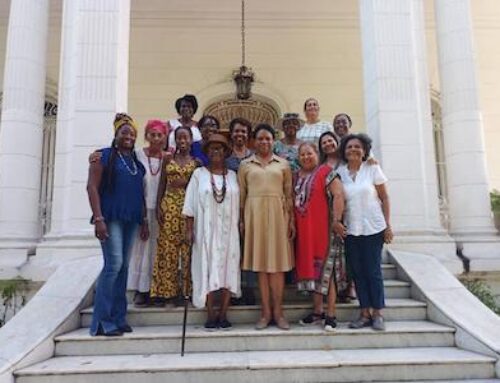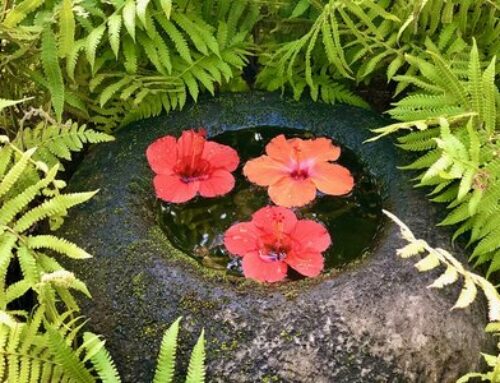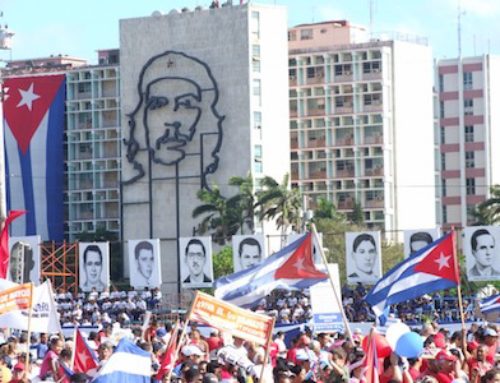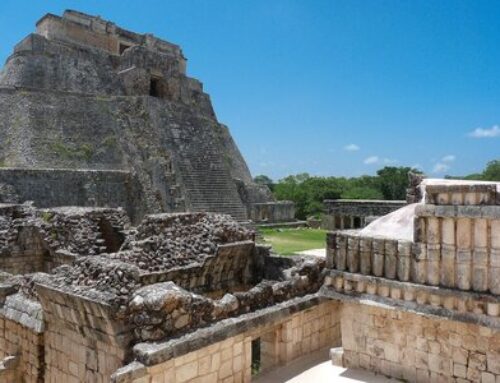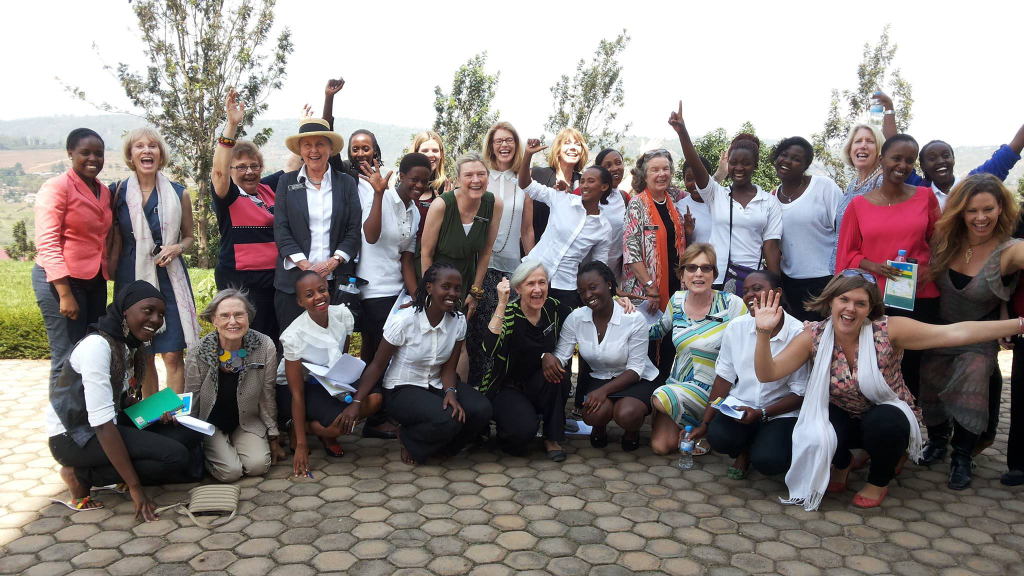 March 8th has been International Women’s Day every year since 1911. It’s a day for people around the world to celebrate the achievements of women while calling for greater equality.
March 8th has been International Women’s Day every year since 1911. It’s a day for people around the world to celebrate the achievements of women while calling for greater equality.
The theme this year is Make It Happen. Like many of you, we love making things happen here at Altruvistas, so we couldn’t be more pleased about this theme.
In honor of International Women’s Day, we decided to share the story of what happened when 14 women traveled to Rwanda earlier this year on an Altruvistas custom journey, timed to coincide with the 20th anniversary of the 100 day genocide that claimed the lives of roughly one million Rwandans.
The women on this trip were part of the Delegation for Friendship Among Women, a nonpolitical, self- funded organization that nurtures friendship to understand women’s work and lives and to exchange information, ideas and support for the benefit of all especially in countries often in transition.
The delegates are all professional women leaders from around the United States with a variety of backgrounds and professional experience. You can read more about some of these awesome women here.
Their Rwanda trip mission was to provide books and computers for learning, recreation and healthcare. Talk about making it happen! Joining them on the trip was Altruvistas founder Malia Everette.
We asked one of the trip planners, Cathi Smith, to share some of the highlights of this journey to Rwanda. She’s the President of the Delegation for Friendship Among Women, and a recently retired family medicine physician and faculty member at the Mayo Clinic in Arizona.
As Cathi puts it, “With 14 women on the trip, one can imagine there would be more than 14 explanations of why a part of their heart would always remain in Rwanda.”
Here’s Cathi’s explanation, along with some highlights from the trip, in her own words:
On why Rwanda, and why now…
Rwanda was selected as our destination because April 2014 was the 20th Anniversary of the 100 day genocide during which approximately one million Rwandans were slaughtered. Multiple others were maimed and/or infected by HIV due to rape. Genocidaires were often neighbors, friends or family with ethnicity a great divisional cause. I met no one who was Rwandan who hadn’t personally been touched by this tragedy and devastation to their country.
On the progress being made in Rwanda…
It has only been 20 years and the progress they have made is astonishing and admirable. Now, one is not a Hutu, Tutsi or Twa, but a Rwandan.
President Paul Kagame has encouraged empowerment of the people, especially women and children. Unity and Reconciliation is the message. Education, health and economic stability are the goal of Vision 2020. The official language is now English although Kinyarwanda, French and Swahili are often spoken. English is the economic language of surrounding countries.
67% of parliament are women and gender issues are a priority. Rwandan women are a major contributor to continuing to advance the progress and unity of their country. Not only did I note the beauty of this country of a thousand hills, but the communal healing power of shattered souls.
On the progress makers…
I was struck by the number of organizations both nongovernmental and governmental that are giving of their strengths, experience and knowledge to assist this transition. So many we met were providing healthcare, education and training in sustainability and eco hospitality training.
I have been asked by so many with whom I talk now that I am back which was the best group, what are they doing. To me selecting “A” best group would be like asking a teacher who was her “best” student or a mother who is her “best” child or in my instance “which of your 5 grandchildren do you love the most”. It can’t be done…
I was impressed, touched, transformed by so many, most particularly those who shared their testimony with us regarding events of the genocide and coming back together as a country and society after the devastation.
On the women you met in Rwanda…
One of the first groups with whom we met on the very first day was a group of 27 women with sewing machines operating a sewing business out of a small house on a side street not far from our hotel. There were only 3 of us who were able to go as we had arrived in Kigali a few days earlier than the planned itinerary.
We were greeted enthusiastically and taught the accepted traditional Rwandan greeting: 3 kisses are given starting with one on the right cheek then the left and again on the right followed with a handshake or a hug.
It turned out they were all HIV positive widows who had been maimed or raped or both and had surviving children to raise. They met at the WEACT HIV clinic, and once medication had their disease process under control, needed a means to support themselves.
Some were previously identified as Hutu and some as Tutsi. To accomplish healing and camaraderie it was decided they would all come together to sew at this small house rather than individually at home. They have developed deep friendships and communal support for one another to heal personal trauma both physical and mental.
To personally witness the testimony that some gave and how this small Ineza group had changed their lives is something I will never forget. The beautiful African products they make and sell to support themselves are colorful and with great workmanship, under the business name Manos de Madres, meaning “Hands of Mothers”.
On why a part of their hearts would always remain in Rwanda…
There were several big examples that were universal to all of us. One was at the Kigali Genocide Memorial where we each laid a rose on a mass grave site where 250,000 remains are buried.
We also visited several schools. There are needs in Rwanda for support of education and health. The Akilah school in Kigali is a full time two year secondary diploma school that teaches information systems, entrepreneurship and hospitality management.
All classes are taught in English. We were so moved by how articulate they became in just one to two years of classes. All the students are female and 90% are placed in jobs after graduation.
On the purpose of this delegation…
The project was to provide books and computers for learning, recreation and healthcare. Board members Linda H. and Carol H. met with an organization called Books for Africa, which is a non-governmental, non-profit organization based in Minnesota and Atlanta that ships containers of books and computers to Africa.
New delegate Dr. Kim H. worked with them before through her foundation “The Eric James Harms Memorial Library Foundation” in honor of her late son. We partnered with Kim and Books for Africa to send approximately 22,000 books (a shipping container full) and 11 desktop computers to Imbuto Foundation in Kigali at the request of First Lady Mrs. Jeannette Kagame.
Cathi goes on to explain that there is a need in Rwanda for many more books, but that shipping is expensive as Rwanda is landlocked, which makes it not feasible for individuals to just ship their own books.
She suggests instead, donating through Books for Africa, and to specify for Rwanda, “click on Rwanda and The Eric James Harms Memorial Library Foundation.”
On how this trip came about…
This particular delegation trip was over a year and a half in development with several trips to Washington D.C. to meet with USAID, the State Department Rwandan Desk and the Rwandan Embassy by myself, Past President Linda H. and multiple other board members.
Cathi adds a shout out to Her Excellency Rwandan Ambassador Mathilde Mukantabana and her staff for their support.
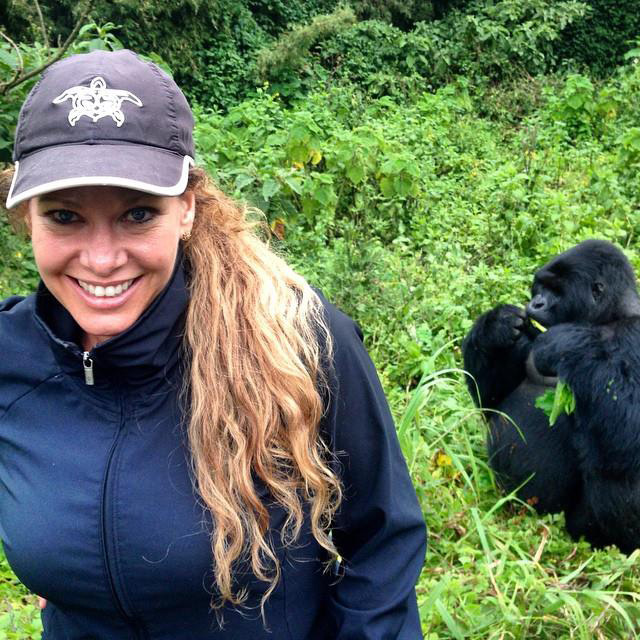 She finished by admitting that there was a little time set aside for going ape. Although not part of the official working itinerary for the group, delegates spent a few days enjoying an eco-friendly gorilla trek, which Cathi describes as, “An experience of a lifetime,” which “every single trip participant said was something they would suggest doing when traveling to Rwanda.”
She finished by admitting that there was a little time set aside for going ape. Although not part of the official working itinerary for the group, delegates spent a few days enjoying an eco-friendly gorilla trek, which Cathi describes as, “An experience of a lifetime,” which “every single trip participant said was something they would suggest doing when traveling to Rwanda.”
TAKE ACTION!
- To find more International Women’s Day stories, here are some handy hashtags to follow: #MakeItHappen, #womensday, #IWD2015, and #internationalwomensday;
- To donate books or other support to Rwandans, visit www.booksforafrica.org;
- Do you have a travel destination and a mission in mind? Consider organizing your own trip with Altruvistas, and perhaps someday soon you’ll be sharing your own once-in-a-lifetime trip experience here on our blog!

